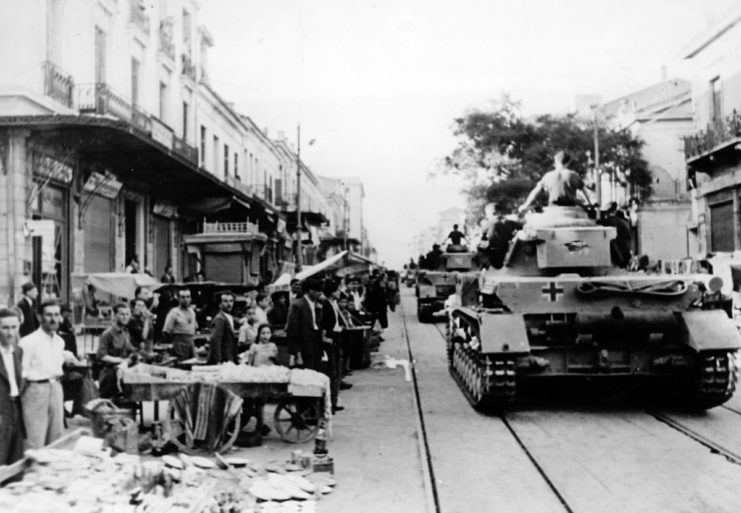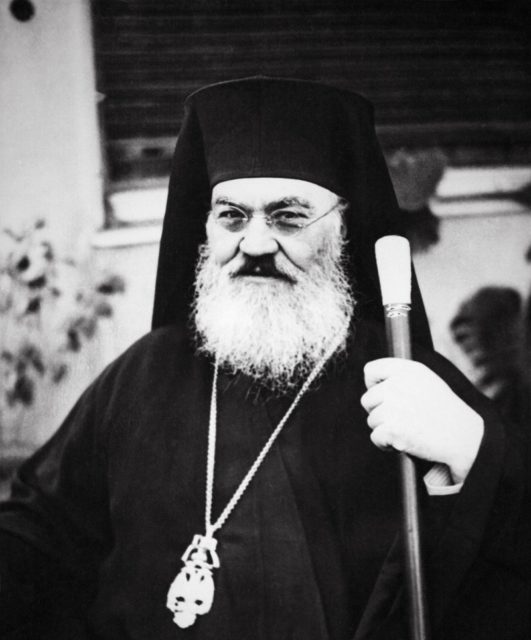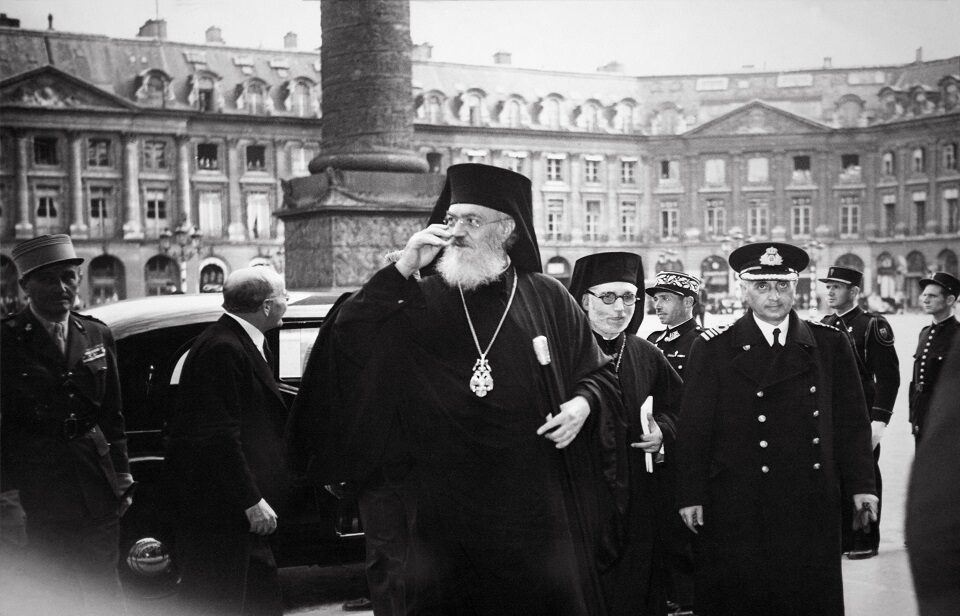Damaskinos Papandreou was the Archbishop of Athens from 1941 to 1949. This position made him the highest-ranking priest in Greece, which was under German occupation at the time. He helped those who were deemed criminals by the Nazis, and when Greek Jews started being exterminated, he used his power and influence to save as many lives as he could. It is estimated that he saved around 27,000 Greek Jews from being sent to concentration camps.
Papandreou was born as Dimitrios Papandreou in Dorvitsa, Greece, on March 3, 1891. Although he was raised in a poor rural family, he was able to study law and theology. He signed up and served in the military during the Balkans Wars of 1912 and 1913. In 1917 Papandreou was ordained to the priesthood of the Greek Orthodox Church in 1917, and then in 1922 became the Bishop of Corinth.
In the early 1930s, Papandreou spent his time as an ambassador of the Ecumenical Patriarch in the United States and helped establish the Greek Orthodox Archdiocese of America.
He was elected to the Archbishop of Athens in 1938, but Greece’s dictator at the time – Ioannis Metaxas – disliked the decision and canceled the election.
In 1941 Nazi Germany invaded Greece and the pre-existing government fell, giving Papandreou’s supporters an opportunity to elect him as the Archbishop of Athens. As the spiritual leader of the Greek Orthodox people of Athens and All Greece Papandreou had a large responsibility, but it was one he was perfectly suited to bear.
The Invasion

Soon after the German invasion of Greece many citizens who resisted their presence were arrested and executed. During this time Papandreou openly disagreed with the practice and the Greek government (which was friendly to the Nazis). There was little Papandreou could do to stop the executions, so he frequently visited prisoners before their death to comfort them. He would also often send his lawyer to assist Greeks in German courts.
The situation became dramatically worse in 1943 when the Germans began rounding up Greece’s Jewish population for extermination. Many were sent to Nazi concentration camps where they were either executed or worked to death.
In March Papandreou publicly defended the treatment of the country’s Jews in a letter to the leaders of the country, including the Germans. In this letter, he made it clear that he was fully behind Greece’s Jewish population and that he would not carry out any orders to deport them. He said, “all the children of Mother Greece are an inseparable unity: they are equal members of the national body irrespective of religion.”
He handed the letter to German SS Commander General Jurgen Stroop.
After reading the letter, Stroop furiously told Papandreou that he would have him shot. Papandreou simply replied: “According to the traditions of the Greek Orthodox Church, our prelates are hanged and not shot. Please respect our traditions!”
Stroop never carried out his threat.

Papandreou accepted his mission to help the Jews, stating that “I have taken up my cross. I spoke to the Lord and made up my mind to save as many Jewish souls as possible.”
Papandreou ordered churches under his authority to secretly issue Christian baptismal certificates to Jews in the country, to help them evade persecution from the Nazis. Furthermore, he asked his priests to assist Jews wherever possible and to hide those who could not safely flee.
His priests honored his request. When the Nazis ordered the Bishop of Volos to list the names of all of his town’s Jewish residents, he had them evacuated and only wrote down his own name.
These antics infuriated the Nazis, but they continued throughout WWII. Thanks to his defiance, it is estimated that nearly 27,000 Jews were saved.
In fact, Papandreou was placed under house arrest by the Nazis in 1944 and threatened with deportation, but thankfully this never happened.
When Greece was liberated by the Allies, Papandreou became a national hero. He even served as the leader of the country for a while. He died in 1949.
